Ever found yourself deep in a recipe, only to realize you’re out of Chinkiang vinegar?
It’s the secret zing in many Asian dishes and not having it might seem like a deal breaker.
Been there, done that. Lucky for you, your kitchen’s about to turn into a flavor rescue zone.
I’ve got five genius swaps for Chinkiang vinegar that’ll save your dish without a hitch.
No need to dash to the store or ditch your dinner plans.
With these substitutes, you’re all set to whip up magic, keeping your meal on track and as delicious as ever.
What’s Chinkiang Vinegar?

Chinkiang Vinegar, also known as black vinegar, is a traditional Chinese condiment.
It’s made from glutinous rice, wheat, and other grains that have been fermented and aged for months in different types of wooden barrels.
The result is quite a unique and subtle flavor – it has a mellow sweetness with hints of smokiness and a notable tartness.
In terms of how to use it, this type of black vinegar is excellent as a seasoning or marinade in Chinese culinary dishes or any other cuisine you prefer.
Additionally, you can add some drops of Chinkiang vinegar to your favorite soup or stir-fry recipes for added depth and complexity.
The 5 Best Substitutes for Chinkiang Vinegar
If you’re looking for vinegar to add a kick of flavor to your food, Chinkiang vinegar is a great option.
However, if you can’t find it in your local store or simply don’t have time to get it, there are several excellent substitutes that will work just as well.
Here are the five best substitutes for Chinkiang vinegar:
1 – Rice Vinegar
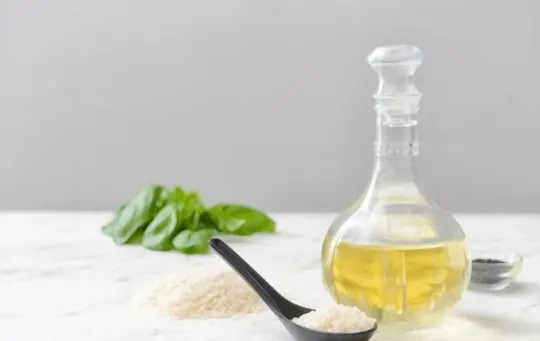
Rice vinegar is a type of vinegar made from fermented rice in China, Japan, and other Asian countries.
It has a light, pleasant flavor, slightly acidic and sweet, making it ideal for use in salads, sauces, or as seasoning.
Rice vinegar has a milder type than traditional Chinese Chinkiang Vinegar, so when substituting one for another, use less amount of rice vinegar.
You may also need to adjust the sugar or salt slightly.
Rice vinegar is also great for marinades due to its delicate taste – the light sweetness brings out the best flavors of your ingredients without overwhelming them.
2 – Apple Cider Vinegar
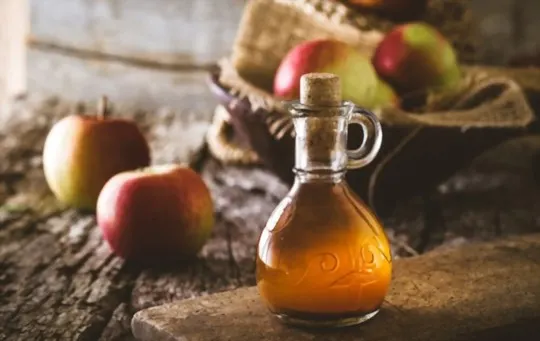
Apple cider vinegar has become a popular health ingredient of late, and for a good reason.
Its tangy flavor is familiar yet distinctive; many use it to add height and complexity to dishes.
The deep aroma of apple cider vinegar lends itself to being an excellent replacement for Chinese black vinegar in recipes.
It will deepen the flavors and lend a slight sweetness when added in smaller portions, balancing saltiness and acidity.
Unlike white vinegar or distilled vinegar, its taste is unique enough that it can be substituted wherever a recipe calls for Chinkiang black vinegar.
Try drizzling some on steamed vegetables or roasted potatoes; you’ll find the flavor can’t be matched.
3 – Balsamic Vinegar
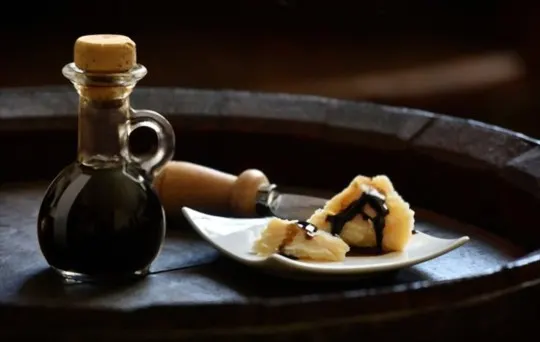
Balsamic vinegar is a unique kind of Italian vinegar that, while similar to other varieties, has its own distinct flavor.
It is made from unfermented grape juice and milk, which are slowly cooked and aged in wooden barrels.
This process gives the vinegar a strong aroma of sweet grape syrup and a tart taste.
Balsamic can be enjoyed on salads and makes an excellent substitute for Chinkiang vinegar in many dishes.
Unlike Chinkiang, balsamic has a more intense flavor, so only small amounts should be used when substituting.
As balsamic ages, it mellows out, leaving behind notes of cherry, dried figs, plums, and even raisins – making it an ideal topping for steak or cheese.
4 – Red Wine Vinegar
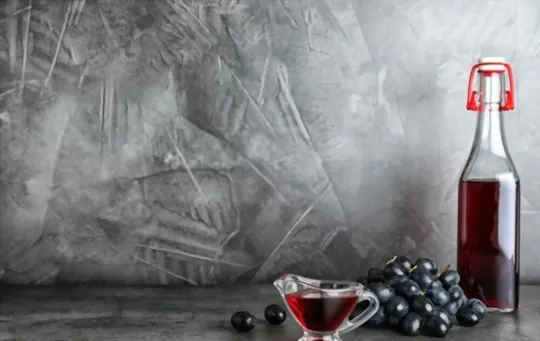
Red wine vinegar is a deep, dark brown-red liquid made from red wine.
This vinegar dates back to the Romans, who used it both as a condiment and medicinally.
It has a tart, tangy taste that comes from the natural process of fermentation using naturally occurring wild bacteria.
Red wine vinegar evokes a robust, full-bodied flavor and makes for an excellent substitute for another popular variety: Chinkiang vinegar.
When substituting these, you can use equal parts red wine vinegar with an equal amount of Dijon mustard or honey to make it match Chinkiang’s unique sweetness.
Whether you’re making salad dressings or marinades, this potent ingredient will give your cooking depth and flavor that is sure to please.
5 – White Wine Vinegar
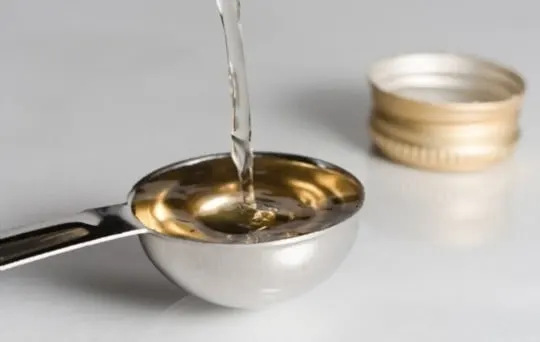
White wine vinegar is beloved for its unique flavor, which adds a subtle complexity to salads and other recipes.
Its taste varies depending on the wine used to make it – most white wines produce a mild and slightly tart flavor that pairs well with light foods like greens or fresh fruits.
White wine vinegar is an excellent substitute for Chinkiang vinegar, which has a darker, more robust taste.
Unlike Chinkiang vinegar, white wine vinegar retains some of the sweetness of the original wine while still providing zesty notes.
To easily recreate the flavor of Chinkiang in a recipe, use 1 part white wine and 1 part apple cider vinegar instead.
Conclusion
In conclusion, there are many substitutes for the popular Chinese Chinkiang vinegar.
Rice vinegar is a milder version that can be used in equal amounts, while apple cider vinegar and balsamic vinegar have their own unique flavors that can add complexity to dishes.
Red wine vinegar brings a robust flavor, while white wine vinegar offers subtle sweetness.
Whichever substitute you choose, it will add great flavor and depth to your cooking.
Have fun experimenting and see what flavors you can create.

The 5 Best Substitutes for Chinkiang Vinegar
Ingredients
- Rice Vinegar
- Apple Cider Vinegar
- Balsamic Vinegar
- Red Wine Vinegar
- White Wine Vinegar
Instructions
- Pick your favorite substitute from the list above.
- Follow cooking directions for your selected substitute with the proper ratio of ingredients.

Andrew Gray is a seasoned food writer and blogger with a wealth of experience in the restaurant and catering industries. With a passion for all things delicious, Andrew has honed his culinary expertise through his work as a personal chef and caterer.
His love for food led him to venture into food writing, where he has contributed to various online publications, sharing his knowledge and insights on the culinary world. As the proud owner of AmericasRestaurant.com, Andrew covers a wide range of topics, including recipes, restaurant reviews, product recommendations, and culinary tips.
Through his website, he aims to inspire and educate fellow food enthusiasts, offering a comprehensive resource for all things food-related.

Leave a comment